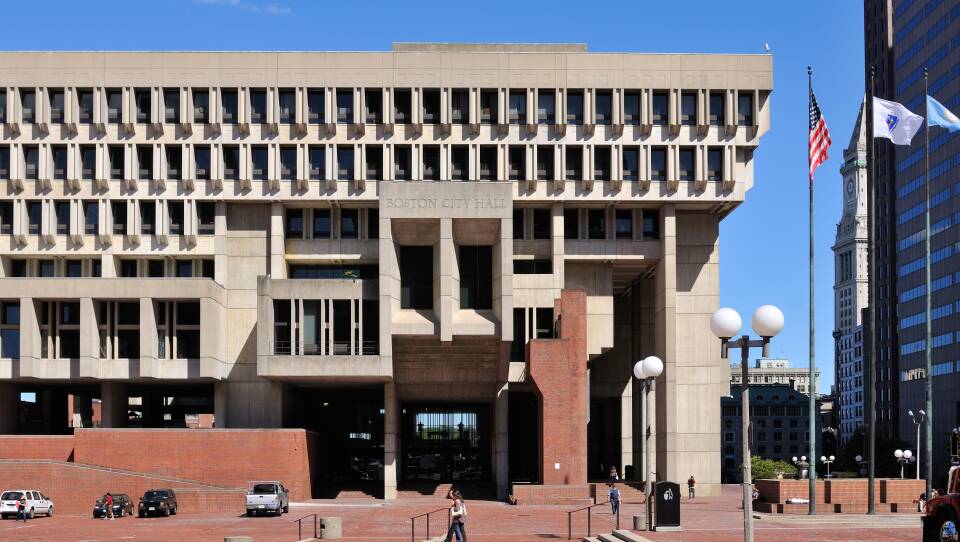Boston City Hall is brutal . It's imposing, but — in the eyes of the architects and urban planners who designed it — signifies the importance of local government in our daily lives.
Lizabeth Cohen details the building's history, and more of Boston's skyline, in her latest book, " Saving America's Cities: Ed Logue and the Struggle to Renew Urban America in the Suburban Age. "
In the 1960s, Boston needed a renewal. Enter Ed Logue, a man who "loved cities," Cohen told Boston Public Radio on Wednesday. During this time period, Logue and a reformist Mayor John Collins worked to entice people to return to the heart of Boston.
"After Government Center was completed, by the late 1960s, the number of people working there jumped from 6,000 to 25,000, so it certainly worked," she said. "They were very explicit that there should not be restaurants and cafeterias within those public buildings, but rather they should be sending people out into the community to patronize independent restaurants and stores, so they'd create more of an economy downtown. The idea was, let's use government dollars behind federal urban renewal, and the presence of government ... let's use that physical presence of government to jump start a private economy downtown, too."
Logue had a reputation for leveraging federal money to renovate large chunks of cities, sometimes leveling entire neighborhoods, like the West End in Boston, said Cohen. Even so, she argued that the urban renewal movement shouldn't be judged by its failures alone.
"We're living in a very different environment right now. It's actually quite recent that empty-nesters and young 20-30 somethings working in tech and finance want to work downtown. That's new," she said. "After (WWII), with cities in the kind of shape I described, most middle class people wanted to get out and live in the suburbs ... All of the economic activity to the extent it was happening in Boston, was happening out there."
Lizabeth Cohen is the Howard Mumford Jones Professor of American Studies at Harvard University and the former dean of the Radcliffe Institute for Advanced Study. She is the author of "Making a New Deal: Industrial Workers in Chicago, 1919–1939," a finalist for the Pulitzer Prize and winner of the Bancroft Prize, and "A Consumers' Republic: The Politics of Mass Consumption in Postwar America."





